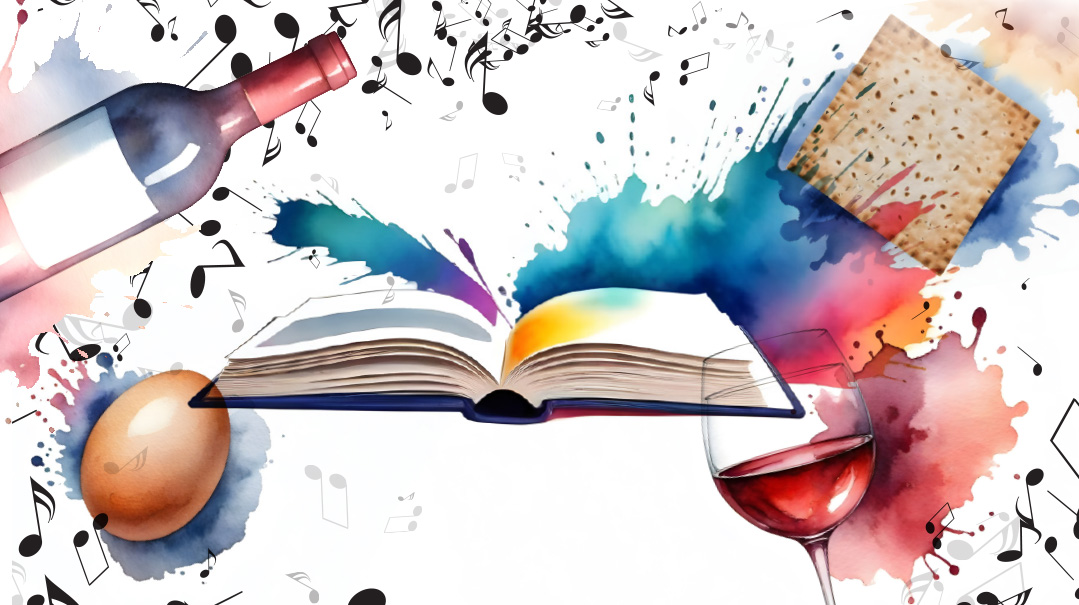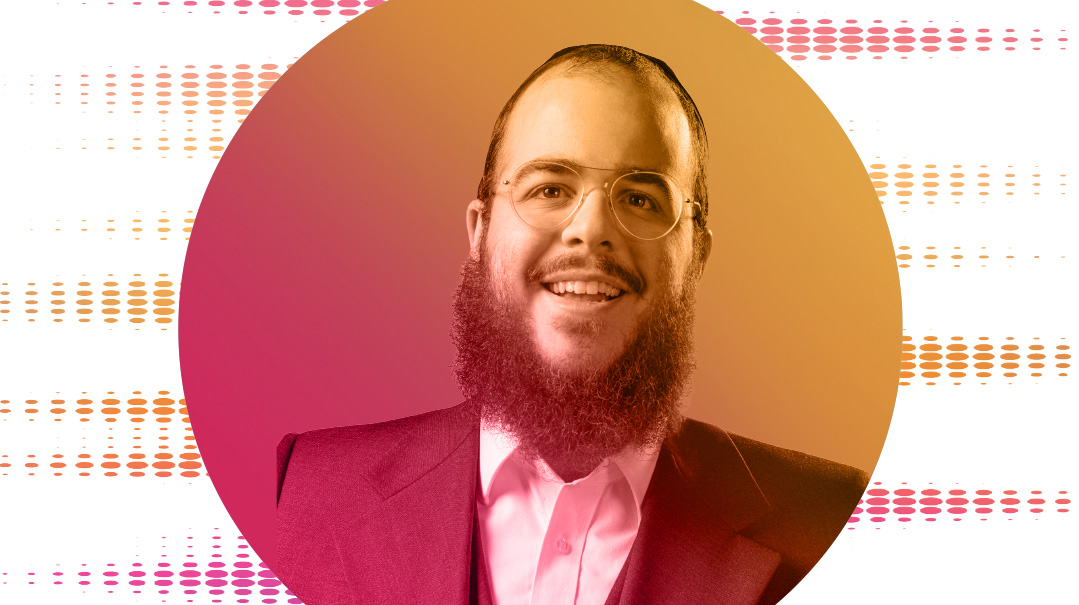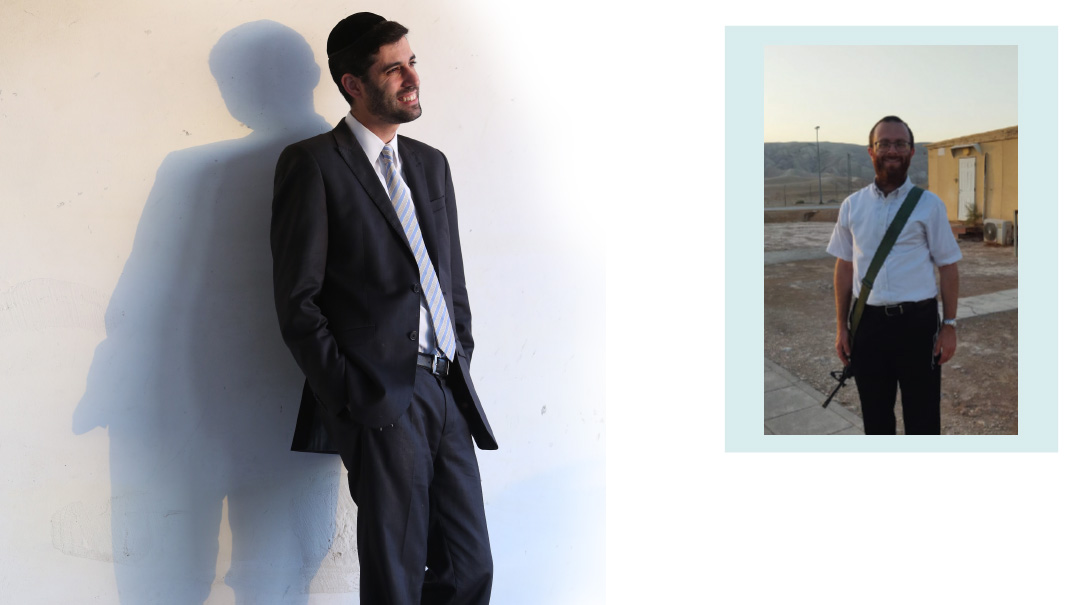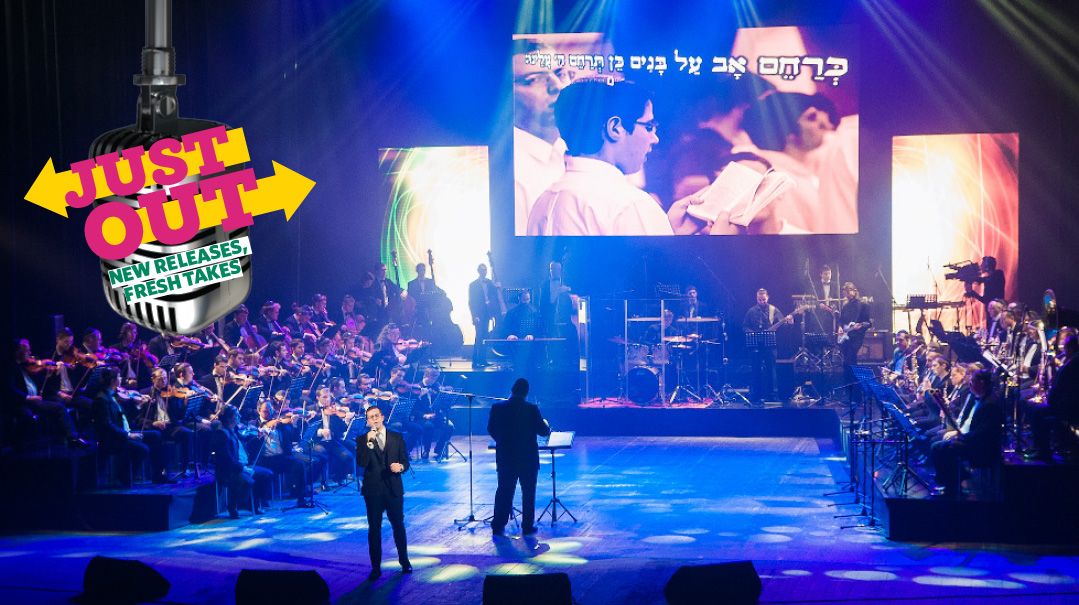Mood Mix with Yossi Newman
| December 12, 2023YOSSI NEWMAN loves spreading joy at simchahs throughout the year, and all summer long
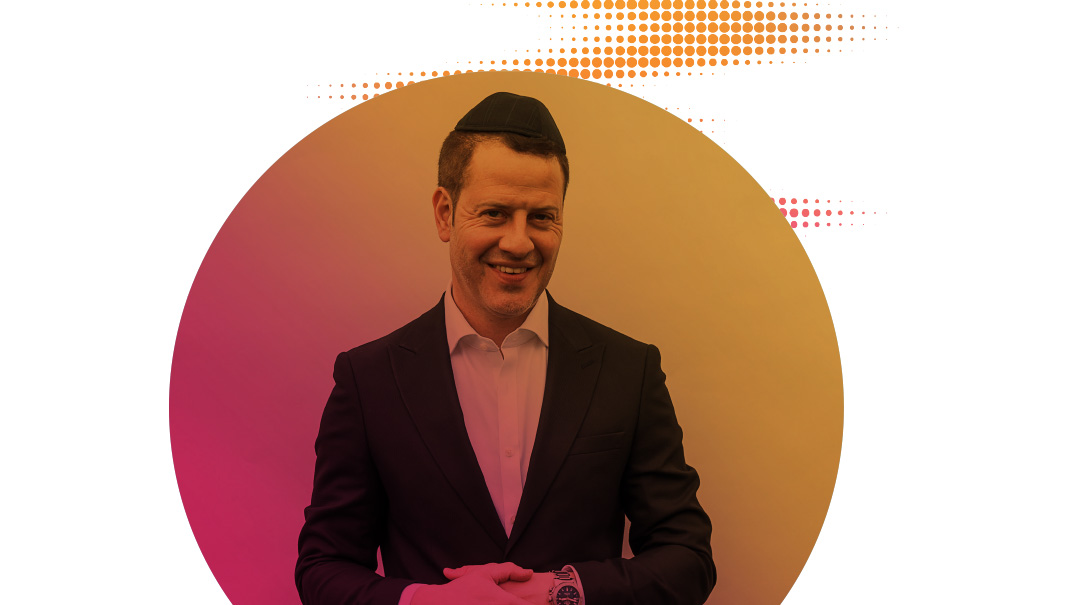
As a popular keyboard player and DJ, YOSSI NEWMAN loves spreading joy at simchahs throughout the year, and all summer long as the veteran musician and DJ at Camp Sternberg, also playing at Camp Romimu, Camp Rayim, Camp Kaylie, Camp Heller, Camp Kol Torah in Cleveland, Aguda Midwest, The Zone, Camp Simcha, and other special needs camps. Now living in Clifton, NJ, Yossi was raised in Flatbush and later lived in Cleveland for five years, during which time he partnered with Eli Gerstner to found the Yeshiva Boys Choir, which he’s conducted, choreographed, and composed for through two hit-filled decades.
A SONG I’VE BEEN TUNING TO FOR CHIZUK THESE DAYS
MBD’s “Unity.” I think its message — “Listen, brother, listen, friend,
just a little smile, a helping hand, and our hearts will find a loving kind humanity,” is more appropriate than ever.
A SONG THAT HAS AMAZING, ORIGINAL VOCAL ARRANGEMENTS
Ishay Ribo’s “Seder Ha’avodah.” You can practically feel how the entire crowd in the Beis Hamikdash is behind you.
AN ARTIST I FEEL MOST CONNECTED TO
I would say it’s a standoff between MBD and Abie Rotenberg. I was in my mid-teens during the 1990s, when they were putting out their really great stuff — think The Double Album and Journeys. Those were great times musically. We had Mendy Wald, Dedi, some nice Dveykus material, Yitzy Bald composing amazing hits, and then Yaakov Shwekey’s debut in 2001 with his blockbuster album, Shomati. I was in ninth and tenth grade, enjoying it all.
MY FAVORITE ENGLISH LYRICS
“You’re tugging and pulling the string in my hand” — another of Abie’s great lyrics. We can’t see Hashem, but we can feel Him “tugging and pulling” the strings in our lives every day.
THE BIGGEST CHALLENGE OF MY JOB
Making everyone happy! The older generation wants the music quieter, while the young people want it louder. I have to play at the right volume for everyone, while the dinner music has to be at a level where people are still able to speak to each other without raising their voices at all.
THE PERFORMANCE I’LL NEVER FORGET
Our first big concert was HASC 18, in 2005. Sheya Mendlowitz a”h called us up to ask if we would sing. It was an honor and a surreal experience — singing at Madison Square Garden with so many legends of the industry. We’ve done a lot of performances since, but that first one will always be special.
AN ENGLISH SONG THAT TUGS AT MY HEART
Abie Rotenberg’s “Memories” from Journeys II: “What will become of all the memories? Are they to scatter with the dust in the breeze? And who will stand before the world, knowing what to say, when the very last survivor fades away?”
ON PLAYING FOR HOSPITAL PATIENTS
You get more than you give when you play for a patient — you see how music changes lives. But it’s hard to share stories of how music brought physical and emotional improvement to patients, because telling those stories over never does them justice. They just don’t sound real — they always sound exaggerated. But when you experience the turnaround, it’s real and powerful. And that can happen when you sing with special-needs children, too. The musical experience is sometimes so powerful that it can get them to respond in ways they never do otherwise. But again, you have to see it to believe it.
MUSIC THAT HELPS ME UNWIND
Actually, music is the last thing I need to unwind! After playing for hours and hours, I usually need something like sports radio. If I do listen to music, it’s probably the last wedding or bar mitzvah I played, so that I can tweak and improve it for next time.
A PASUK THAT MATCHES ITS TUNE
Pirchei’s “Ani Maamin.” Classic and just spot on. I think we’ll be singing this niggun until Mashiach reveals himself.
THE GIG I ALMOST DIDN’T PLAY
I’ve been playing keyboard since I was 12, but when I went to Eretz Yisrael for beis medrash, I didn’t take it along — I went to learn, not to play. But before Succos, one of the roshei yeshivah came over. Somehow, he knew. “Yossi, I need you to play at the Simchas Beis Hashoeivah.” My explanation that I didn’t have an instrument didn’t work, because he made sure to get me one. Hashem had His plans — I played music in Eretz Yisrael, too.
HOW A SONG BECOMES THE HIT OF THE SUMMER
It’s definitely not the biggest singer, most famous composer, or most expensive production that make a song big. What takes off in camp are usually the songs that come from the heart. If the song can talk to the neshamah, and if it has mazel, then somehow, it will stick. One example from when I was a camper is the classic “Ke’ayal Taarog,” which carried the summer even before it was on an album. Nowadays, the Waterbury songs, simply produced by two yeshivah bochurim with a guitar, are big in the camps.
CHALLENGES OF WORKING WITH A BOYS’ CHOIR
Working with our yeshivah boys is often a juggle. Life and learning, yeshivah and tutors and tests, are far more important than choir recordings. It’s very different from an adult artist who spends full days working on an album, because we have to work around a very short window of the day when the boys are available for studio time. I remember one soloist who was taking a long time to record a solo and needed to leave to his chavrusa. He missed his ride, and I felt really bad about it, but I also couldn’t drive him there to make up for the delay. Then another boy’s mother just happened to come into the studio and offered rides if anyone needed — and he got there on time.
A SONG THAT GETS ME INTO THE SHABBOS MOOD
“Mikolos Mayim Rabim.” In Camp Kol Torah of Cleveland, we used to go from davening to the dining room, singing this all the way. And in the dining room, at Shalosh Seudos, we’d sing “Amar Rabi Akiva, ashreichem Yisrael….” Great days, great camp Shabbos vibes.
A SONG THAT TAKES ME TO A DIFFERENT TIME AND PLACE
“Yevanim.” It takes me back to lighting the menorah as a kid, sitting around the candles and singing with my parents. Special, indelible memories of family time.
(Originally featured in Mishpacha, Issue 990)
Oops! We could not locate your form.

